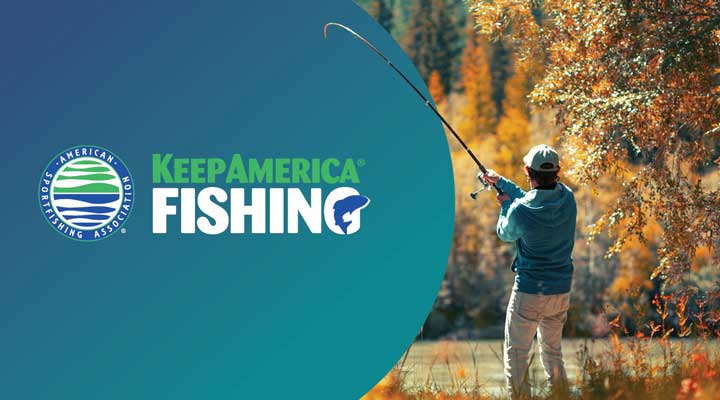With the U.S. House of Representatives having already gotten a head start on the August recess, and the Senate scheduled to start its summer break at the end of this week, it’s a perfect moment to reflect on our progress thus far in 2024 and look ahead at what still can be done before the close of the 118th Congress. The American Sportfishing Association (ASA) has been diligently engaged in legislative developments and advocating for policies that support the sportfishing industry, habitat conservation, and improving access for recreational fishing.
Firstly, the passage of the bipartisan SHARKED Act (H.R. 4051), introduced by Representatives Rob Wittman (R-VA.), Darren Soto (D-FL.), Garret Graves (R-LA) and Marc Veasey (D-TX), cleared the chamber by unanimous vote in February. The SHARKED Act aims to address the issue of shark depredation in saltwater recreational fisheries. These interactions, becoming more common for saltwater anglers, are causing significant frustration for anglers and could create conservation challenges. The SHARKED Act would bring scientists and fisheries managers at all levels together to identify options to mitigate this complex challenge.
Additionally, the passage of the EXPLORE Act (H.R. 6492) by the House is a shining example of outdoor recreation’s ability to bring Congress together, even in these partisan and contentious times. This bill focuses on enhancing public access to federal lands and waters, thereby encouraging more Americans to engage in outdoor activities, such as fishing and boating. Notably, EXPLORE will improve data visitation on public lands, streamline permitting processes for guides and outfitters, provide support for slowing the spread of aquatic invasive species, and improve access for youth and veterans. A companion bill, the America’s Outdoor Recreation Act, is gaining momentum in the Senate, as well.
In May, the Senate passed the America’s Conservation Enhancement (ACE) Reauthorization Act, and it was subsequently introduced in the House a few weeks later. ACE Reauthorization is crucial for continuing vital conservation programs, such as the National Fish Habitat Partnership, the Chesapeake Bay Program, and protecting the use of traditional tackle on public lands and waters. Its bipartisan support underscores a commitment to sustaining these essential programs for another five years.
Despite these successes, there remains important work to be done. Notably, none of these bills have been signed into law by the President, yet.
Congress still needs to pass funding bills for key programs and secure the necessary resources to support critical habitat and fisheries management activities. We look forward to working with House and Senate leaders to implement these crucial measures as the FY25 appropriations process moves forward and ensure the continued success of recreational fishing across the United States.
Additionally, the impending expiration of the Farm Bill, the largest conservation program administered by Congress, presents another pressing challenge. Both chambers have introduced versions of the bill, and both include some of our Fisheries in the Farm Bill priorities, but unless the two chambers can reach an agreement, the Farm Bill will expire before the end of the year. Recognizing its potential to provide almost $6 billion to conservation programs, habitat restoration, and public access initiatives, ASA and our partners have been advocating diligently for a bipartisan agreement that supports fisheries conservation.
Lastly, the Biden administration has yet to release its final North Atlantic Right Whale Vessel Speed Restrictions Rule, which would limit boats 35-feet and larger to a 10-knot maximum speed for approximately six months a year along nearly the entire Eastern seaboard. Despite the availability of existing safety technology features, such passive acoustic monitoring, infrared cameras, satellite imagery, and marine radar, the National Atmospheric Administration (NOAA) proposed excessively restrictive speed zones that will be catastrophic for the entire $230 billion coastal sportfishing and boating economy.
In addition to our work with Congress, ASA has continued to engage with federal and state agencies, regional fisheries management councils, and state legislatures to ensure the future of the sportfishing industry remains strong for generations to come. For example, we’ve fought back against several efforts to undermine the composition of state fish and game commissions, prevented a ban on lead fishing tackle in Minnesota, paved the way improved data collection for Pacific groundfish stocks, and won huge funding increases for Everglades restoration in Florida’s next fiscal year.
With Congress taking the next month off, and a presidential election looming this November, ASA remains committed to working with lawmakers to advance policies that support habitat conservation, access and the overall growth of recreational fishing. Through continued collaboration with our members and partners, we can ensure a bright future for America’s sportfishing industry, anglers, and the natural resources we all cherish.
Share This Article, Choose Your Platform:
Recent Posts



